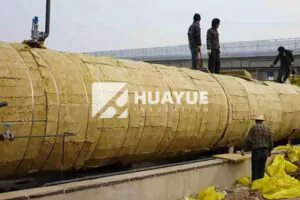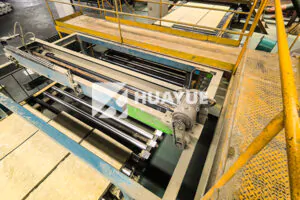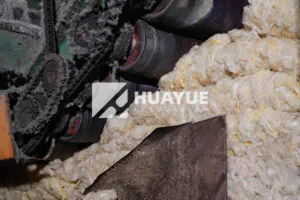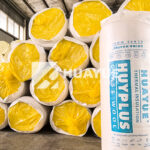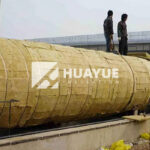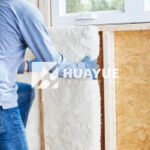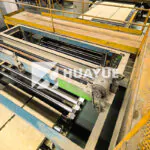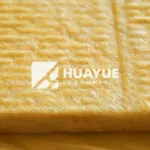Is mineral wool good for soundproofing?
Noise in industrial plants or busy spaces can disrupt work, cause stress, and even lead to complaints. Finding a reliable, easy solution for soundproofing is critical.
Mineral wool insulation, like that from HUAYUE, is highly effective for soundproofing because its dense fiber structure absorbs and isolates noise, preventing sound from passing through walls, floors, and ceilings.
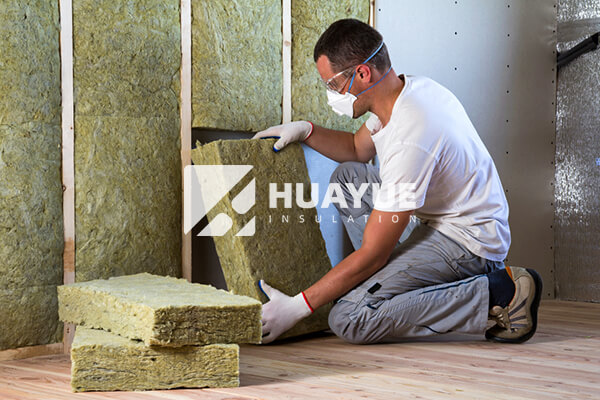
I have faced sound issues in many project environments. Sometimes machines make so much noise that people feel distracted in neighboring rooms. I wanted a solution that would keep noise contained without major construction hassles. By exploring mineral wool, I found it gives reliable noise isolation along with fire safety and durability. Let’s explore how it actually works and where it makes the most impact.
What is mineral wool and how is it made?
Factories and noisy buildings need soundproofing materials that last. Most insulation materials claim to help, but only a few actually make a big difference long-term.
Mineral wool, also known as rock wool, is made by melting down natural volcanic rocks and recycled materials. The hot liquid is spun into fibers, much like making cotton candy. These fibers are pressed into firm mats or boards before being cut to size for installation.
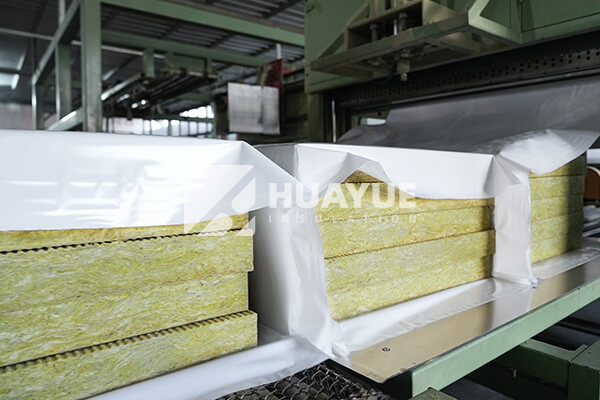
Mineral wool stands out because of its recipe. HUAYUE uses a blend of basalt and other minerals to create insulation that’s naturally fire resistant and water repellent. Its production is simple and sustainable—scraps are recycled right back into the process. This cuts waste and lowers the carbon footprint. The finished boards are dense but easy to cut and shape, letting installers fit them snugly in walls, floors, or ceilings. Unlike some older insulation materials, mineral wool from HUAYUE is safe to handle and poses no health risk when installed correctly.
Here’s a quick comparison table of raw materials and production benefits:
| Feature | Mineral Wool (HUAYUE) | Fiberglass | Spray Foam |
|---|---|---|---|
| Base Material | Basalt, Dolomite, Recycled | Glass Sands, Chemicals | Polyurethane |
| Fire Resistance | Yes | Limited | Limited |
| Water Resistance | Excellent | Poor | Variable |
| Sustainability | Very Good | Moderate | Poor |
| Ease of Handling | High | Moderate | Low |
The dense fiber structure that results from this process is what makes it so great for blocking sound. Fibers tangle and form a maze for sound waves, absorbing and scattering them before they can pass through.
How does mineral wool perform for soundproofing?
Finding a material that truly blocks noise in busy environments can save time, reduce stress, and even avoid neighbor disputes. Does mineral wool really deliver?
Mineral wool insulation from HUAYUE is designed to both absorb and contain sound. Its high-density fiber mat acts as a barrier, reflecting sound waves back toward their source while converting some of the noise energy into heat. This action stops sound from passing through to the other side and dampens echoes within a space.
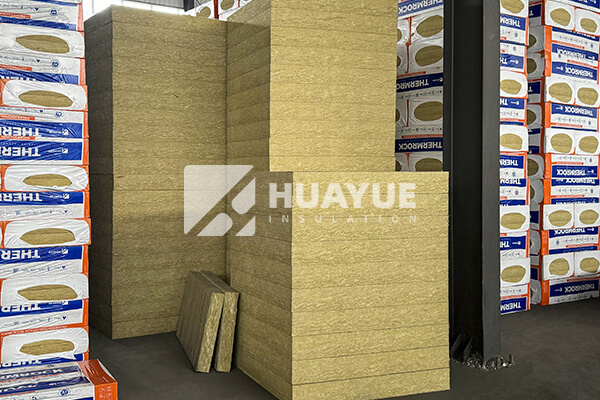
When evaluated for soundproofing, two numbers stand out. The Noise Reduction Coefficient (NRC) and the Sound Transmission Class (STC):
- NRC: Measures how much sound a material absorbs (0 = none, 1 = all). HUAYUE mineral wool can reach NRC values close to 1, which means it absorbs nearly all incident sound.
- STC: Gauges how much sound is blocked. Typical mineral wool walls achieve STC ratings around 43. By comparison, spray foams and other lightweight materials often fall short.
Here’s how materials compare for sound blocking:
| Material Type | NRC Score | Typical STC (Wall) |
|---|---|---|
| Mineral Wool | 0.95–1.00 | 43 |
| Spray Foam | ~0.75 | 37–39 |
| Cellulose | ~0.75 | ~40 |
This means mineral wool is ideal not just for offices or schools, but also for heavy industrial applications such as power plants, warehouses, and even stadiums. It keeps sound contained—whether from engines, heavy machinery, or enthusiastic crowds.
How can you use mineral wool insulation for best results?
Many insulation materials are awkward to install or may break down over time. Some don’t fit well in real-world environments where vibrations and moisture are a concern.
HUAYUE mineral wool insulation is produced in slabs that keep their shape and rigidity. These slabs slip into the spaces between framing studs in walls, beneath floors, or above ceilings. For new builds, soundproofing is most effective when the material is installed before applying drywall or finish panels. Even in renovations, slabs can be customized and pressed into place by hand.
Let’s break down optimal installation steps for three major areas:
Walls
- Install slabs between studs with slight pressure for a snug fit.
- Ensure no gaps—sound escapes through even the smallest openings.
- Seal seams or small cracks with an acoustic sealant.
- Add a double layer of drywall if needed for maximum soundproofing.
Floors
- For floating floors, place mineral wool slabs as an underlay.
- This dampens footsteps, rolling carts, or vibrations from above.
Ceilings
- Fix into ceiling cavities where weight and gravity are a concern.
- For high-noise environments, floating ceiling systems with mineral wool provide superior results.
Here’s a summary table for areas and recommended usage:
| Area | HUAYUE Mineral Wool Use |
|---|---|
| Walls | Within frame, before drywall for sound blocking |
| Floors | Floating floors, beneath heavy equipment |
| Ceilings | In ceiling cavities, or as part of floating system |
This step-by-step approach means even loud industrial plants or busy offices can stay much quieter. Maintenance teams like mine favor HUAYUE because its mineral wool doesn’t compress or sag over time, keeping its soundproofing performance stable year after year.
Conclusion
HUAYUE mineral wool insulation provides long-lasting, effective soundproofing for any space, combining top-level noise control with fire safety and easy installation.
You may also be interested in:
Ready to Get Started?
Get in touch with our experts for personalized solutions tailored to your needs.
Get Free QuoteLatest Articles
Let's Work Together
Ready to take your business to the next level? Get in touch with our team of experts and let's discuss how we can help you achieve your goals.
Get Free Solutions
